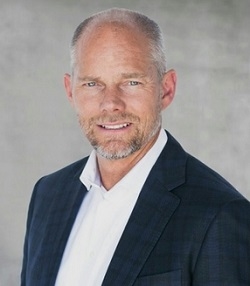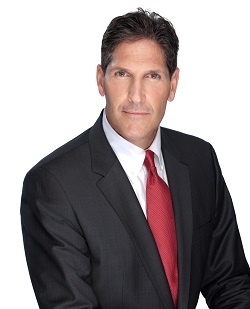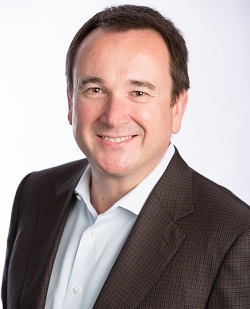As wireless companies develop their 5G networks and look to steal market share in both video and landline broadband from cable operators, MSOs are actively approaching the convergence issue from the other side.
Notably, the three biggest publicly traded U.S. cable companies now have MVNO agreements with major wireless companies to launch mobile services.
Comcast was out of the gate first, launching Xfinity Mobile 18 months ago; the cable company reported 577,000 subscribers as of the end of the first quarter.
Charter Communications, which has forged a partnership to share mobile technology and business resources with Comcast, is set to launch its service, Spectrum Mobile—also based on a Verizon MVNO—in the coming days.
And Altice USA, which announced an MVNO agreement with Sprint last year, is set to debut its mobile service in 2019.
“We aren’t just a cable company offering wireless,” said Hakim Boubazine, co-president and chief operating officer of Altice USA. “Altice USA on a global scale has offered wireless services alongside fixed telecommunications services for many years—in France, in Portugal, in Israel, and in the Dominican Republic. … So we have experience in both structuring and integrating a combined fixed and wireless company and what works well.”
Wireless companies have been generally dismissive regarding the MVNO-based services; T-Mobile CEO John Legere even called Charter’s upcoming launch “irrelevant squared.”
But they assume this position at their own peril, Morgan Stanley Research said this week, while predicting that cable MVNOs will add around 2.2 million mobile phone customers in 2020, or almost 50% of the industry’s total net customer additions.
“Wireless executives had been dismissive of cable's foray into wireless, and the economics of the MVNO model in an unlimited world; however, following Comcast's early success (Comcast added more phone customers than Verizon and AT&T in 2017), we think the companies, and investors, are more sensitive to this risk,” the research company’s analyst wrote.
And this is just the consumer-facing side of the business.
For example, through its IoT-focused machineQ division, Comcast has deployed LoRaWAN technology in 10 U.S. “smart” cities.
Charter, meanwhile, has promised an “inside-out” strategy that will expand beyond the Verizon deal into core infrastructure with the deployment of licensed LTE small cells.
So who are the executives leading this cable transformation? FierceCable has compiled short profiles of some of the most prominent ones. In terms of being the executive faces operators choose to roll out at investor events and to the press, these are not the guys. (And in terms of racial and gender diversity … again, these are not the guys!) But we’re aiming to provide a little insight as to who the top executives in the cable/wireless area are and what they’re working on.

DANNY BOWMAN
Chief mobile officer, Charter Communications
Who he is: The 17-year Sprint, Nextel and Cellular One veteran was working as the chief revenue officer for the North American operation of LeEco, the Chinese media and electronics conglomerate, when Charter hired him as its top mobile executive in March. Bowman was at Sprint during that carrier’s ill-fated, Pivot-branded joint venture with Comcast, Time Warner Cable and Cox Communications. Pivot was an effort by that group of cable companies to add Sprint-powered wireless service to their range of offerings, but it fell apart in 2008. He reports to Rich DiGeronimo, Charter’s executive VP of product and strategy.
What he’s doing: While fellow Charter wireless executives Craig Cowden and Manish Jindal have been looking at how Charter might build its own wireless network with spectrum including the 3.5 GHz CBRS band, Bowman is leading Charter’s launch of a new mobile service based on an MVNO deal with Verizon; Spectrum Mobile is due to debut in the coming days.
Like Comcast’s Xfinity Mobile, Spectrum Mobile will offer users unlimited data for $45 a month, provided they also subscribe to a Charter wireline broadband service. The similarity of Spectrum Mobile to Xfinity Mobile isn’t surprising, since the two have forged an alliance to develop a common mobile operating platform. Luckily, much of Bowman’s work was already done by his Comcast counterpart, Greg Butz. Reports have said that Charter’s new mobile service will mirror the pricing of Comcast’s Xfinity Mobile, which launched in early 2017.

GREG BUTZ
President, Comcast Mobile
Who he is: Tapped to the then-new position of president of Comcast Mobile two years ago, Butz had actually joined Comcast all the way back in 1993 as director of business development for the erstwhile Comcast Cellular Communications. In the 24-year span before the launch of Xfinity Mobile in early 2017, Butz is credited by Comcast for leading the teams responsible for the development, growth, and transformation for the Xfinity.com digital sales and self-service channel, and the creation of the Xfinity Store retail channel. In fact, for more than two decades, Comcast has liked the Butz big leadership … and it cannot lie. His titles have included senior VP of marketing and business development for Comcast Online; president of business planning and development; VP of business development for Comcast Online; and senior VP of marketing for Comcast Cable. He reports to Dave Watson, CEO of Comcast Cable.
What he’s doing: Eighteen months after launch, the product directly overseen by Butz has largely been successful, with one analyst suggesting that Comcast is conservatively looking at a long-term revenue opportunity of $7.5 billion a year from its new mobile service if penetration within its footprint matches that of its landline voice product. Reporting 577,000 subscribers at the end of the first quarter, Comcast executives have largely cited modest thresholds for profitability, saying the wireless service needs to only secure a percentage share “in the low-to-mid-single digits” of the company’s 25 million wireline broadband customers in order to be profitable. It’s largely seen as a retention and churn-busting tool for the larger bundle. “Our focus around mobile is to enhance the broadband experience, to deliver more value to the current relationship,” Comcast Cable CEO Dave Watson said at an investor event last month. “And so that’s the step one. In addition, we’re very focused on delivering solid economics—we’ve said and absolutely are still there that we’re going to be profitable on a per customer basis at limited scale. So that continues.”

CRAIG COWDEN
Senior VP of wireless technology for Charter
Who he is: The former Sprint executive migrated to Charter two years ago, when it swallowed Bright House Networks; Cowden had served as senior VP of enterprise solutions at the Florida-based operator. Before the arrival of Danny Bowman to run the consumer-facing mobile platform, Cowden had been Charter’s most visible wireless executive, also leading the operator’s tests of 3.5 GHz services in the CBRS band. Cowden directly reports to Charter’s top tech executive, Jim Blackley, executive VP of engineering and IT, and he’s found his niche as a key operator in advancing a crucial agenda for the No. 2 U.S. cable operator.
What he’s doing: In addition to having a big hand in leading Charter into its MVNO arrangement with Verizon, Cowden has helped to oversee the operator’s tests of 3.5 GHz services in the CBRS band. Speaking at a wireless industry event late last year, Cowden outlined three main 3.5 GHz CBRS use cases: “neutral host” networks for all wireless players, point-to-point and point-to-multipoint fixed wireless services and private LTE networks for industrial IoT and other applications. Cowden said Charter’s fixed wireless tests are an effort by the company to potentially expand the area it can sell internet services to without having to deploy a wired network.

ALEX KHORRAM
General manager, machineQ
Who he is: The founder of several Philadelphia-area startups began working as a strategic development executive for Comcast in 2013 and was at the reins in October 2016 when the cable giant launched its enterprise IoT service unit, machineQ. As general manager, the serial entrepreneur and London Business School graduate is responsible for vision, strategy, product, sales, and day-to-day operations for machineQ.
What he’s doing: Khorram and his team have set up wireless networks in 10 U.S. smart cities, each running on the LoRa wireless network standard and designed for internet of things (IoT) uses. “We’re developing innovative solutions ranging from monitoring public infrastructure, to enabling predictive maintenance on consumer appliances, just to name a few. And, interest has come from organizations spanning a wide range of industries, like healthcare, public utilities, automotive and consumer electronics,” Khorram blogged last year, introducing the B2B service. Recently, machineQ has embarked on a steady, sustained publicity assault, regularly announcing new cities and clients.

JEAN-CHARLES NICOLAS
Senior VP of Altice Mobile
Who he is: Altice USA just named Nicolas, formally deputy CEO and CFO of Altice’s Dominican Republic operation, to its newly created top mobile business post. Nicolas now oversees the development, launch and ongoing marketing strategy for an Altice mobile service built on the back of an MVNO deal signed with Sprint in November. At Altice Dominica, Nicolas managed the daily operations of all company services, including a mobile business that was available across the Dominican Republic. Before joining Altice Group in 2009, he worked for French wireless and MVNO provider Neuf Cegetel. Nicolas is responsible for the end-to-end mobile customer experience, including operations, marketing, sales and customer care. He reports to Hakim Boubazine, Altice USA’s co-president and chief operating officer, who worked with Nicolas in the Dominican operation.
What he’s working on: Altice said its new mobile service will debut sometime in 2019. “Because we have a full MVNO agreement with Sprint, we have complete control over the features, functionality and customer experience of our wireless service, so we really view ourselves more as a true next-generation MNO in the U.S. market, providing a unique and new experience,” Boubazine told FierceCable. “Our full MVNO will leverage both the Sprint Network, roaming partners and our own infrastructure to deliver the best-in-class entertainment and innovative digital services through high-quality, ubiquitous and seamless connectivity. We also understand the pain points of our customers when it comes to their current wireless packages, and understand that they want simplicity—one touchpoint for all of their communications & entertainment services—including one bill. Our offers will be attractive, delivering on the convergence of fixed and mobile to bring a unique entertainment and communications service to our customers.”

IAN WHITING
President of Ruckus Wireless
Who he is: Arris paid $800 million last year to acquire Ruckus Wireless, with the top cable industry vendor looking to seize opportunity in internet of things, edge computing and CBRS, among other wireless-based markets. Earlier this month, Whiting—who previously served as chief commercial officer—took the reins of the operating unit now called Ruckus Networks, following the abrupt departure of Dan Rabinovitsj to a still-unnamed technology company. With Ruckus since 2015, Whiting’s resume also includes senior sales roles at Brocade and Compaq, as well as a stint as executive VP of global field operations for Sandisk. Like Rabinovitzj, Whiting reports to Arris CEO Bruce McClelland.
What he’s working on: In a blog post announcing his promotion this month, Whiting identified his division’s priorities: convergence of LTE, Wi-Fi/Ethernet switching and IoT; high-density Wi-Fi and multigigabit networks; cloud-scale network control; and “bringing the next billion people online.” He added, “This is a very exciting time to be at Ruckus as we experience tremendous growth and momentum under Arris. We have a vibrant business with a strong product portfolio, a great leadership team, and partner relationships which are the envy of our competitors.”